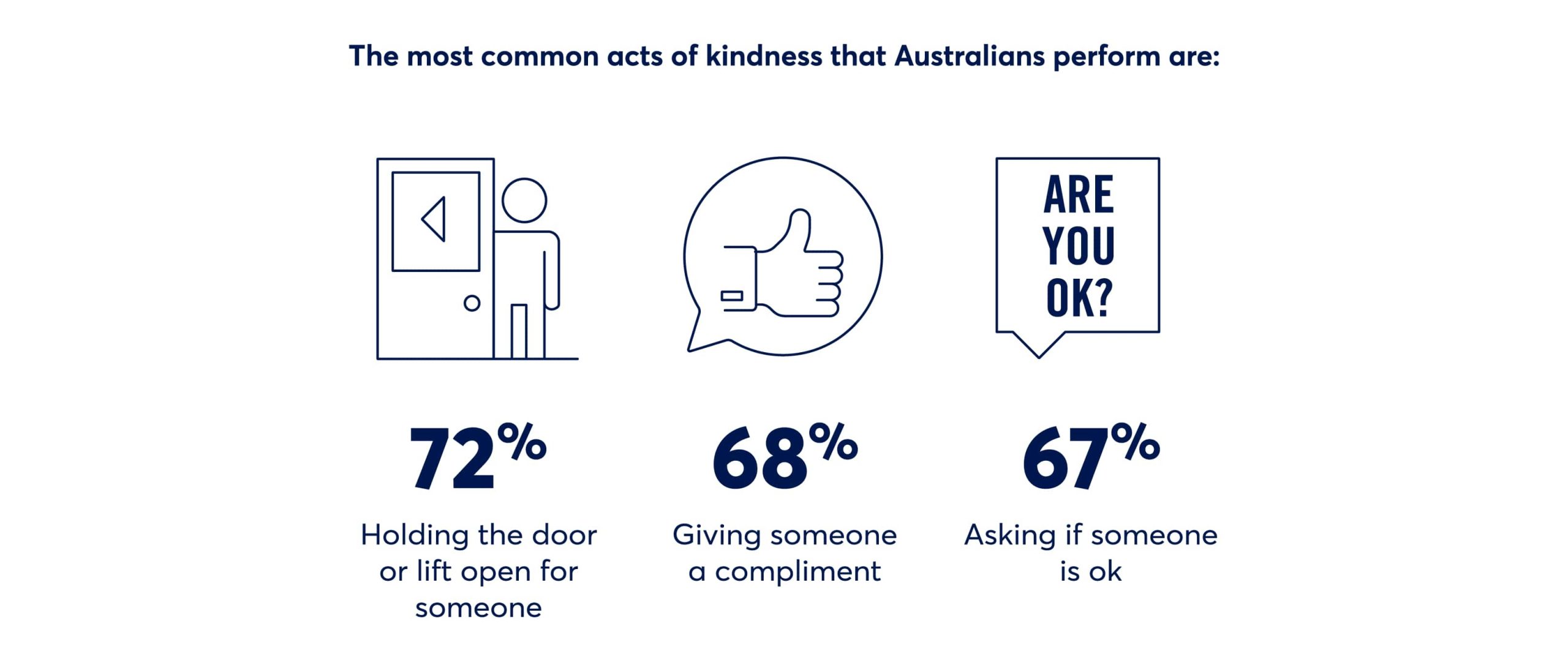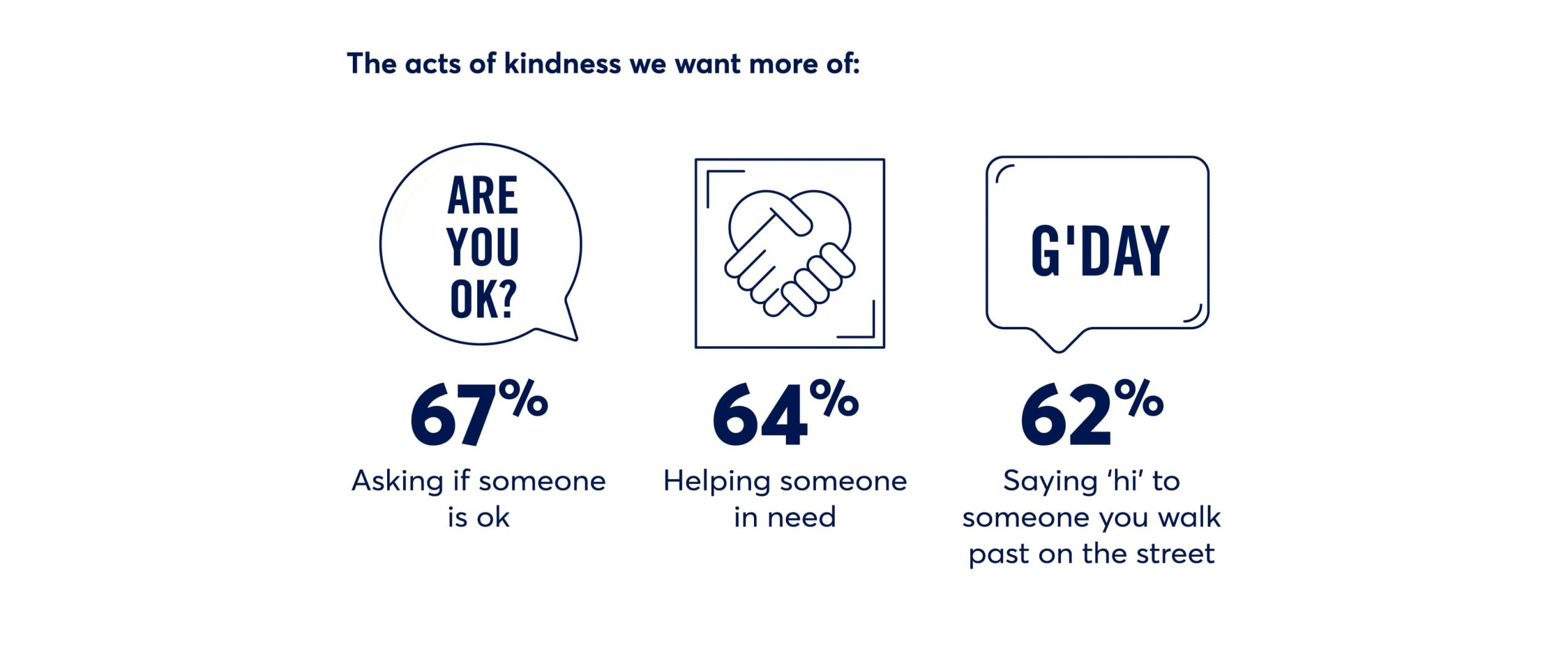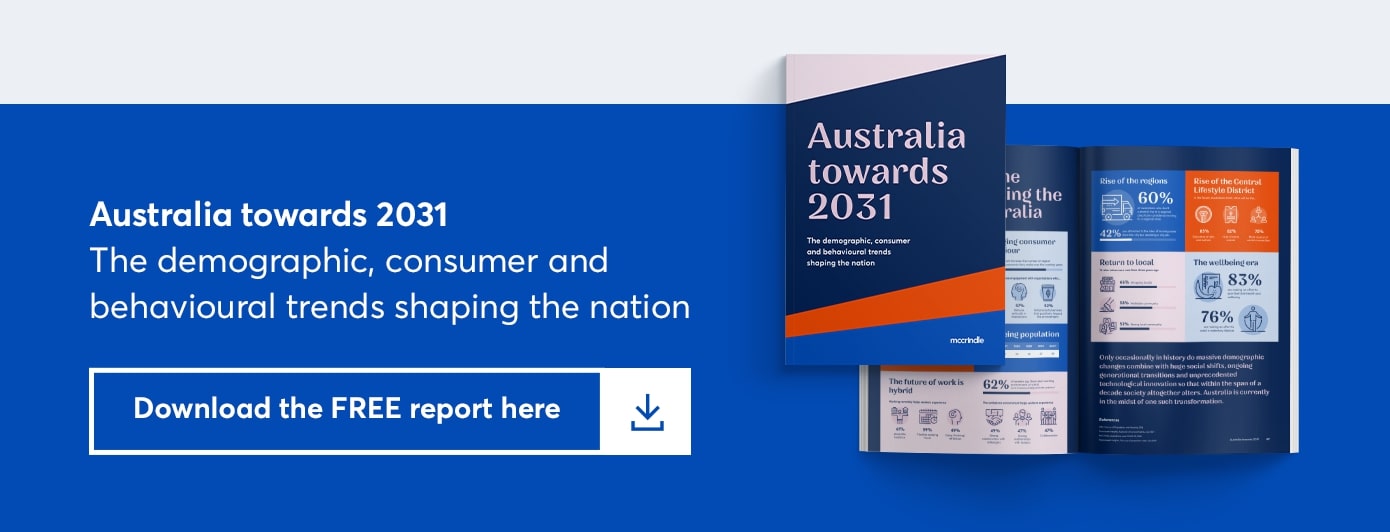By: McCrindle
Kindness is part of Australia’s fabric. According to new research commissioned by Helga’s Bakehouse, not only do Australians believe the culture of kindness in Australia is stronger than the rest of the world (62%), but they’re also living that out in their daily lives.
The average Australian performs 16 acts of kindness every week through the words they speak, the actions they perform, and the time they give.
While Australians are conscious of the kindness they give to others, they are less aware of the kindness they receive. Australians only record an average of six acts of kindness received each week, highlighting a gap of 10 acts of kindness that are going unnoticed. This highlights our need to be mindful not only when being kind, but also, taking note and appreciating when others might be showing kindness to us.

Being kind isn’t always easy
Australians face barriers to being kind such as being out of their comfort zone (25%) or not knowing how their kindness will be received (25%).
Australians are optimistic about where kindness is going in Australia. Not only are they more likely to believe Australians are kinder now than they were 12 months ago (46%), but two in five (40%) also believe Australians will be kinder in the future.
Food is the way to our hearts
Food may be key in helping Australians show kindness to each other, as almost four in five (78%) believe sharing a meal with friends and family is a powerful way to display kindness. Three in four Australians (75%) believe making someone food is a powerful way to display kindness and seven in ten (69%) believe buying someone food is powerful.
The Kindness Index
As part of this research project, we developed a Kindness Index which calculates a score for individuals based on factors including their behaviour, attitudes, and their thoughts and feelings towards the virtues of kindness.
Younger generations scored the highest in the kindness index, with a score of 77 out of 100. Gen Y and Gen X scored 74, while the Baby Boomers and the Builders scored 71. But overall, it shows that while a great score, there is still room for improvement.
Tasmania, the Northern Territory, and Western Australia are the most welcoming states, with their residents being more likely than the rest of Australia to agree others would consider them a welcoming person.
Those from the Northern Territory, Tasmania, and New South Wales are most likely to feel motivated to help someone all the time or very often.
Those from South Australia, Tasmania, and the Australian Capital Territory are most likely to all the time or very often consider other people’s needs.
What can Aussies do to be kinder?
When we asked Australians how we can be kinder there were three simple responses.
1. Asking more, are you okay? (67%)
2. Helping people when we see a need (64%)
3. Simply saying hi to people when we see them (62%).

The future is bright
The future of kindness in Australia is very bright. In fact, COVID-19 has demonstrated our kindness and community mindedness very strongly. Australians are most likely to believe we are kinder now than we were 12 months ago (46%), and that we will also be kinder in 12 months’ time (40%). That is a great trajectory for where kindness is headed in Australia.
Article supplied with thanks to McCrindle.
About the Author: McCrindle are a team of researchers and communications specialists who discover insights, and tell the story of Australians – what we do, and who we are.
Feature image: Photo by Jess Zoerb on Unsplash

